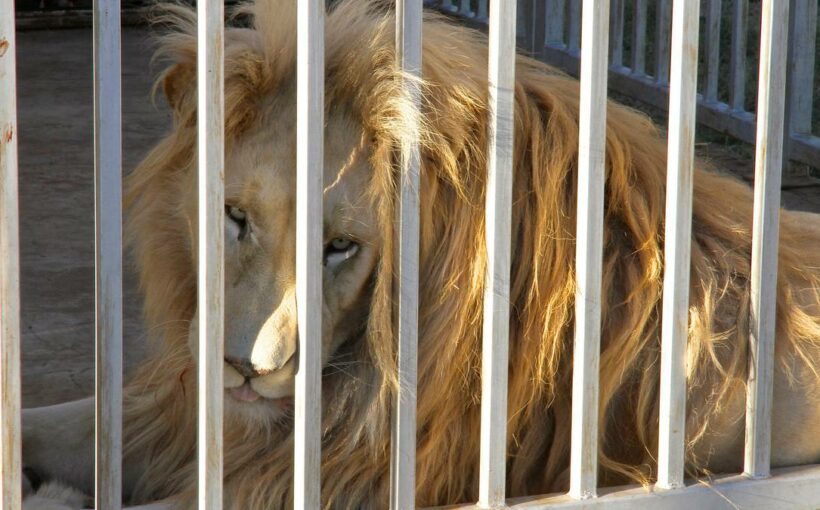South Africa’s ban on “canned” lion hunts, ending a trade long opposed by conservationists, has raised questions over what will happen to thousands of lions that were bred for shooting.
The policy change follows a year-long review which concluded that letting hunters shoot lions in captivity had a “negative impact” on the country’s reputation.
The move was welcomed last night by conservationists who say many of the lions are kept in inhumane conditions and suffer from in-breeding but it has also sparked concerns for the well-being of the canned trade’s remaining stock of lions, believed to be anything up to 12,000.
Conservationists fear breeders – now deprived of a potential living from the beasts – will have no incentive to look after them properly into the animals’ old age.
Eduardo Goncalves, founder of the UK-based Campaign to Ban Trophy Hunting, told the Daily Telegraph: “Potentially this is a huge step forward.
“However, a plan does need to be put in place so that as many lions as possible can lead a dignified life for the rest of their days. Given how much money the industry has made out of this sordid trade, it is not unreasonable that they should put measures in place to look after them.” Conservationists have long denounced canned hunting, whereby lions raised in captivity are then moved to slightly larger enclosures before being shot by paying clients. Hunters find it easier than shooting a lion in the wild.
Cubs raised for canned hunting are taken away from their mothers, who are sometimes made to breed three to four times more than they would in the wild.
The multimillion-dollar trade was first exposed by the British television programme The Cook Report in 1997, when investigative journalist Roger Cook exposed how 2000 lions were being bred in South Africa specifically for shooting. A canned lion hunt can cost US$4000 ($5500), less than half the cost of hunting a lion in the wild. According to South African government figures, there are around 8000 lions currently in captivity for canned hunting, although Dr Louise de Waal, of the Blood Lions organisation said the figure could be up to 12,000. They are kept in more than 450 facilities across South Africa.
“There needs to be a proper audit,” she said.
Britain has promised to ban the import of lion trophies since 2015, spurred by the disclosure that a number of British hunters are clients of the South African canned hunt industry. Goncalves said he was hopeful the Government’s ban would be included in next week’s Queen’s Speech.
Source: Read Full Article

/cloudfront-ap-southeast-2.images.arcpublishing.com/nzme/CCLR2KDRUVA6SXUBAPRB7YDIC4.jpg)
/cloudfront-ap-southeast-2.images.arcpublishing.com/nzme/LYTXT5ZTMBJZBC6FBHTJWAU4GQ.jpg)
/cloudfront-ap-southeast-2.images.arcpublishing.com/nzme/HUCV4E6G2TBXQD4OKOVGXPVB6M.jpg)
/cloudfront-ap-southeast-2.images.arcpublishing.com/nzme/DUQGYQWNK27NRGRWAPW7G4PT7Q.jpg)